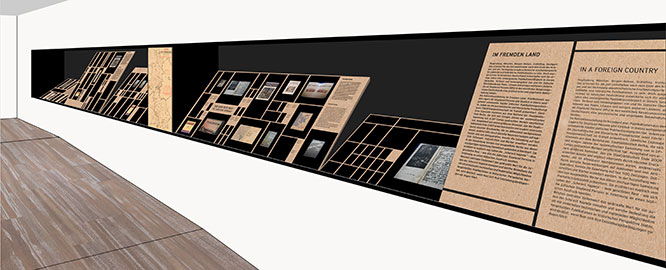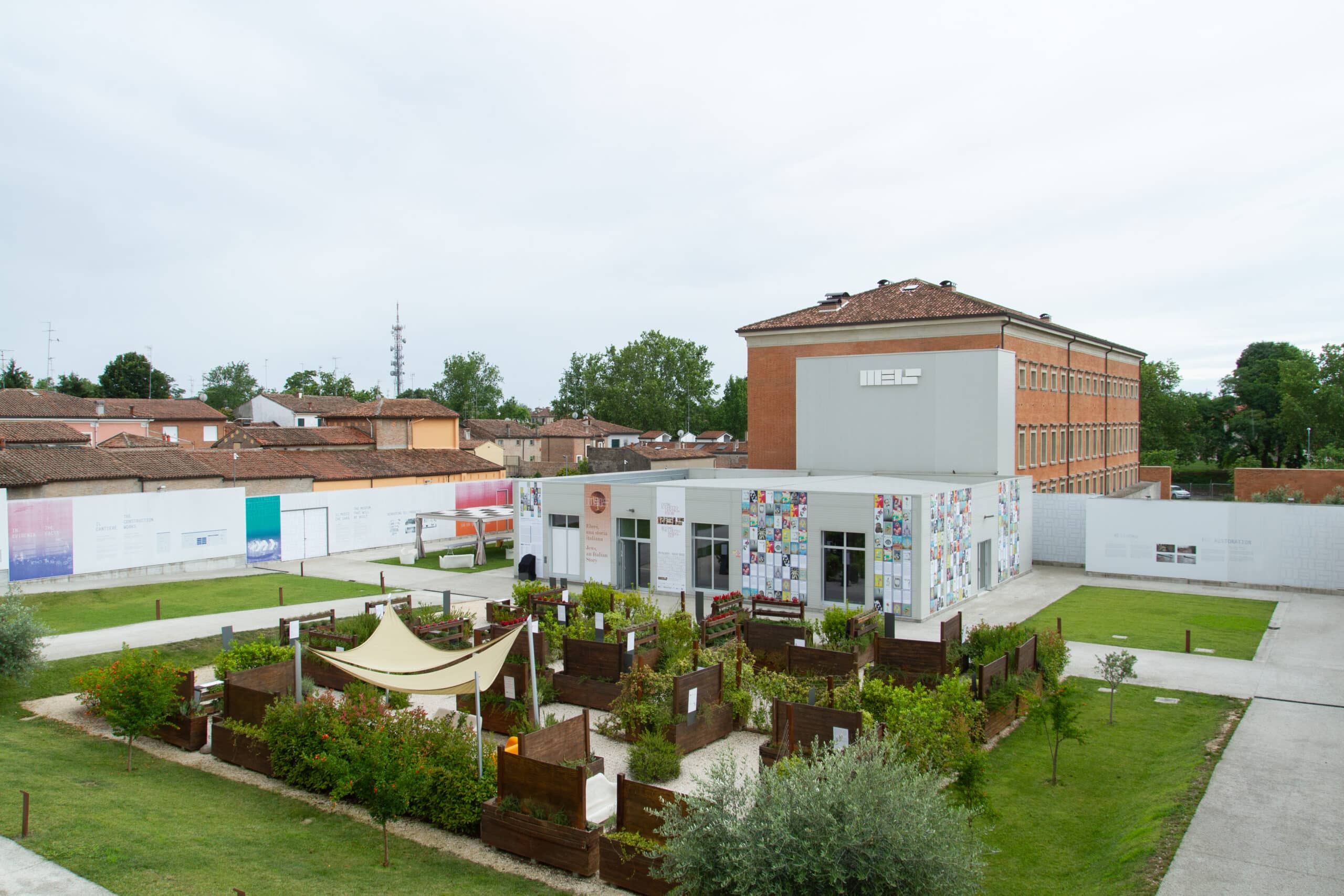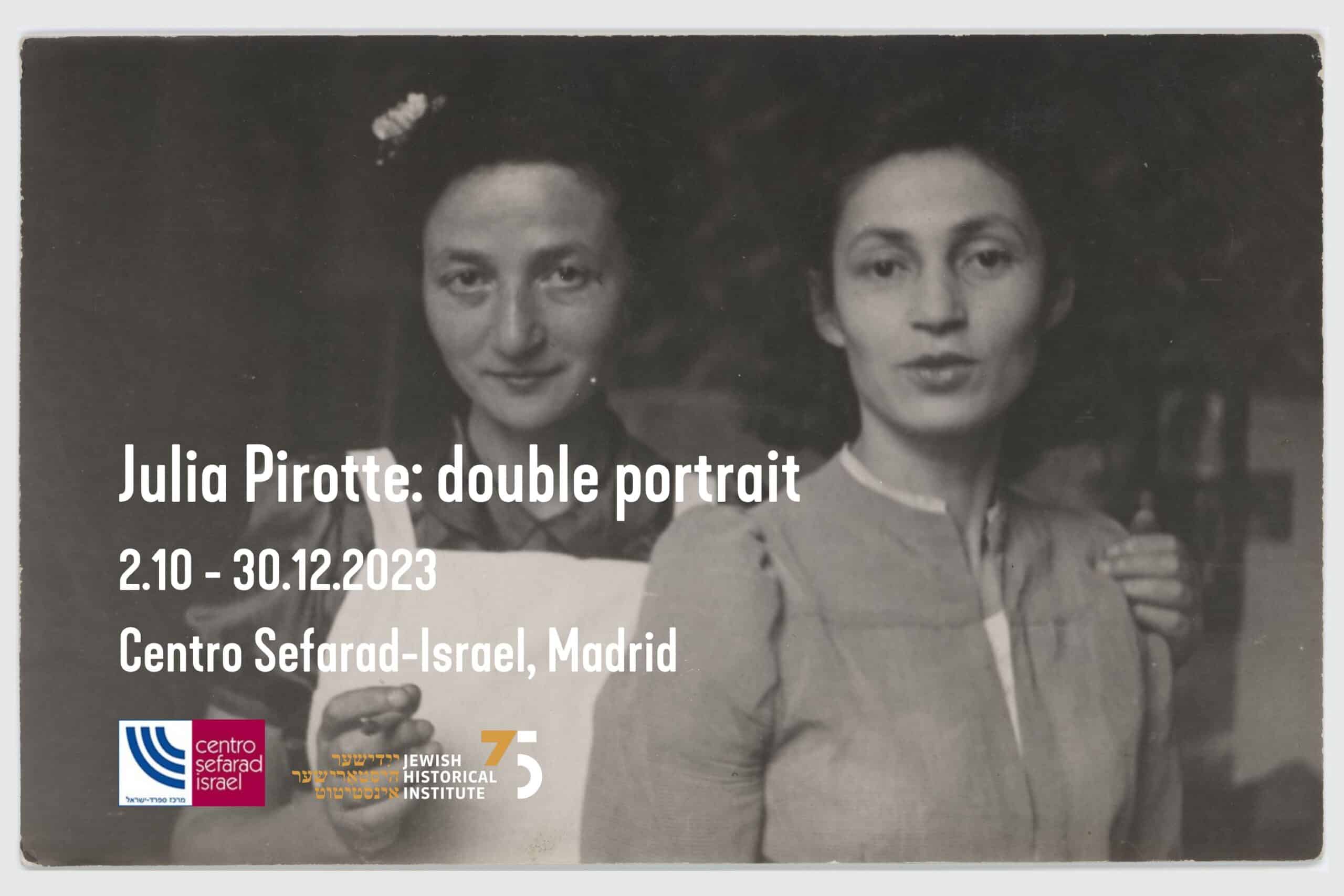Publications from the Displaced Persons Camps. The Berlin State Library in the Jewish Museum Berlin.
Cabinet Exhibition
In the immediate post-war years, in the camps set up for Jewish displaced persons, hundreds of books were published, mainly in Yiddish and Hebrew. The Berlin State Library (Staatsbibliothek zu Berlin – Preußischer Kulturbesitz) resolved some years ago to systematically collect these publications. In our cabinet exhibition, we present for the first time a part of this literature, which was published in Germany but not initially intended for the German general public. Its readership was involuntarily stranded here and thus felt itself to be, as the title of one such book put it, “In a Foreign Country.”
The publications document a largely neglected chapter in the history of the Jewish presence in Germany after the Shoah. Around a quarter of a million East European Jews reluctantly made the Allied Occupation Zones of Germany their temporary home. The works shown here reflect the everyday existence of a provisional community, whose ultimate goal was to migrate to Palestine respectively Israel, the USA, or some other country.
The exhibits include magazines and newspapers, schoolbooks and Zionist pamphlets, as well as haggadot or, for instance, a tractate of the Talmud from St. Ottilien in southern Germany. There are also volumes of prose and poetry from the Berlin State Library’s collection: impressive testaments to survivors’ need to begin writing about their traumatic pasts as soon as the war was over.
The featured publications are, with a few exceptions, neither elaborately nor extravagantly illustrated. Nonetheless, they are precious because they bear traces of their former owners and their history.
Titles such as “Our courage,” “Our path,” “Our voice,” “Our word,” or “On the move” indicate the start of a new life and were on equal footing with magazines like “Fun leztn Churbn” (From the Latest Destruction) which considered the history of the Jews during the Nazi regime.
Autobiographical narrative texts also describe life in Germany including encounters with the German civilian population marked by hatred and trauma.
 Exhibition
Exhibition



